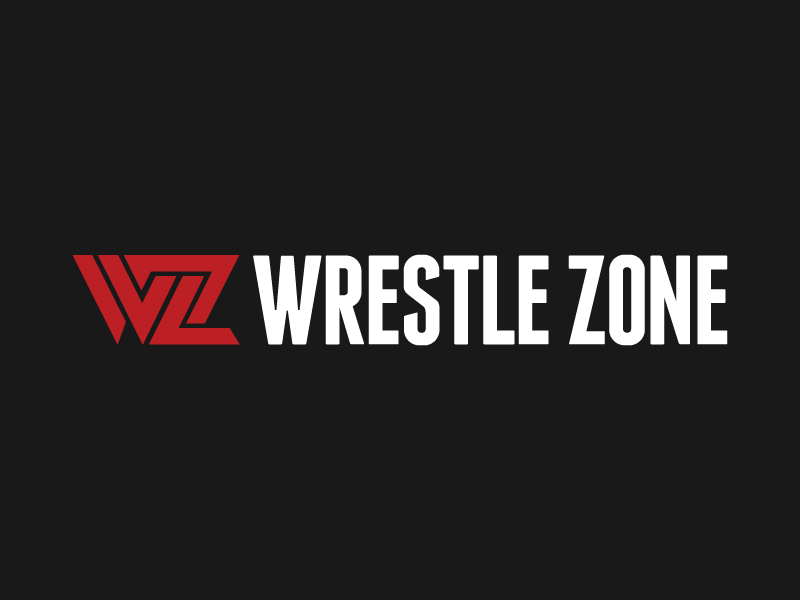The End.
The Pause.
The New Beginning.
At one stage or another, everything has to stop and reset. Getting caught in a perpetual chain of motion tangles and complicates whatever it is into a huge unsolvable knot. Take time for example, which is inevitably everlasting, over millions of years the world has grown and developed, but in so many different speeds and directions that we now stand at the other end, reaping the consequences of what has been sewn. Fossil fuels drying up, the environment crumbling, and humans still going about their business, oblivious. For us, it’s too late to reset, the effects are permanent. But for others, it stands as an alarming reminder that to move forward you must stop.
Professional wrestling has never stopped. Since its transition from sideshows to main events, wrestling has plodded forward, developing over the decades, but never pausing to look back on how it became what it is and ask where it’s going. On a large scale this has lead to the stage that wrestling is at now, while previous “eras” of wrestling can be slotted easily into classifications, the current “era” seems to be floundering nowhere in particular. On a personal scale, the never-ending road trip has had serious effects on the wrestlers themselves, some seeking their “pause” from any drug available and other vices of the road. As the trucks and buses lap the globe, the same morbid patterns repeat decade to decade. The WWE needs to take its first break in over thirty years.
Previously, the WWE couldn’t afford to take a break, at risk of giving their competition an advantage, but with the comfort of a current monopoly, leaving the treadmill may fill the indefinable empty space that the federation has been missing for the last five years. During the same period, the company focused more on entertainment, paying lip service to the sports elements, and it’s this disregard for the athleticism of professional wrestling (particularly by the promoters themselves) that is responsible for recrruing personal troubles and death. When wrestlers, or any other athletes for that matter, are treated as entertainers, bodies shut down, relationships dissolve, and lifetimes are halved. Actors have stuntmen; wrestlers are their own stuntmen. The simultaneous burden on mind and body is overpowering short term, fatal long term, because without respite from the load, something gives out, most often willpower, leading to the soiled reputation of professional wrestlers as people and citizens.
The solution: Seasons.
Each year sports stop, rest, and begin again. Giving their professionals time to recover and refresh before straining every fibre of their being again in the next season. WWE stars don’t have this luxury. Week in, week out, they test the limits of the human body, resting rarely, and never sufficiently. A week over Christmas is the only time the WWE stops touring and broadcasting, generously allowing their staff to see their families and heal their wounds. If professional wrestling were to extend this recess to three months, and make the sport seasonal, the ever-present pitfalls of being a superstar would vanish.
Firstly, the temptations of the road life will always exist, but if the athletes were only on the road for a season of nine months, the drugs, the women, the destructive behaviour would no longer be as seductive. Giving them a life independent of the highways. Even though there are no guarantees that a seasonal shift would solve the drug and sex epidemic, it will at least force a gap in the consumption of both. When at home, the access is narrowed and the urge weakened. This aspect alone would increase the longevity of the business and its stars, plus go far to repair the tattered public perception of professional wrestlers as uneducated junkies.
However, solutions to the slow burning self devastation backstage can be found in almost any change, but while stars are still moving stock and filling stadiums there is no such concern. But, a relevant concern is the increasing apathy of the usually diehard fanbase, an issue that a seasonal structure will resolve. Since 2002, the collective mind of the audience has become more wayward and rebellious, setting out to disrupt the character dynamics and generally becoming a nuisance to bookers and viewers at home. While this is often attributed to the awareness of the internet smarkbase, due to the scale that it has expanded to, the uprising contains far more than the keyboard critics. Fans have grown weary. Those who still watch began watching during the wrestling boom in the nineteen-eighties and for the most part have been regular watchers since. After twenty years of uninterrupted weekly intake, the charm of the sport has gone. It is no longer a treat. It is no longer unpredictable. It is no longer entertaining. The shows that exploit their viewers are the ones that are the most watched, because they don’t let the viewers take them for granted. How many times have blockbuster series’ ended a twelve week season with no answers and even more questions. And how many times have the same series’ received a better rating upon returning. Viewers don’t hold grudges for playing hard-to-get. The same tantalization is what professional wrestling is missing, all cliffhangers are resolved next week and feuds are interlinked, creating a long monotonous chain of storylines that soon become one in the same. Fans need to know what they have, they need to know that they’re spoilt, and the most effective way to do this is to take it away from them. You don’t know what you have until it’s gone.
But seasons aren’t a miracle cure to the limbo the WWE has found itself in. A seasonal approach would require an overhaul of how storylines are managed, title reigns are constructed, and generally they way business has been done for almost a century. Perhaps Wrestlemania should mark the end of the season, considering its presentation as the professional wrestling Superbowl, and therefore giving a “destination” for the year. Storylines could then follow this model, a batch of superstars working their way towards the final showdown, this wouldn’t exclude midseason title changes, n fact Wrestlemania has become the night where most titles change hands anyway. During the same time, other workers could compete for opportunities next season, a concept whose success has been proven with the Money in the Bank concept, but also would increase anticipation between seasons; fans debating whether said star would receive his or her dues. Storylines could still interweave, but a greater onus on the writers would force them to develop storylines over the year and ensure that there is a logical and satisfied conclusion, as opposed to the laziness that has overcome creative as they throw away gimmicks, characters and storylines when they don’t instantly take the world by storm. The possibilities that this approach open up are limitless, and could revitalize wrestling for the jaded veteran and fresh fans alike.
Granted, the theory is ambitious, overly so, but the status quo needs to be shaken up drastically. Professional wrestling has always thrived on controversy, and everyone has grown tired of the schoolyard sexual innuendo that is relied on for shock value. Vince inverted the business when he took the reins from his father; it’s high time he did it again. Except he won’t. Profits are secondary to entertainment and safety in the new scheme, and without dollar signs at the fore, such ideas will take the short route to the shredder.
The company has moved forward unstopped for three decades, a rest is long overdue. More importantly a new beginning is needed to breathe new life into the sport which will continue tapering gradually and endlessly towards nowhere.
The End.
The Pause…
If you would like to contact me, my email is [email protected].
Over and out
Jim “The Butcher” Browne








